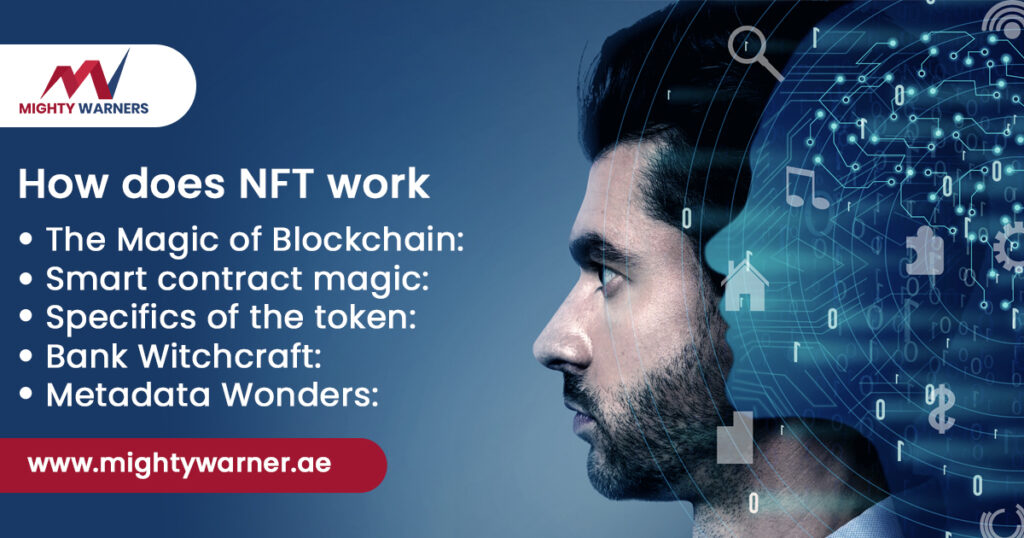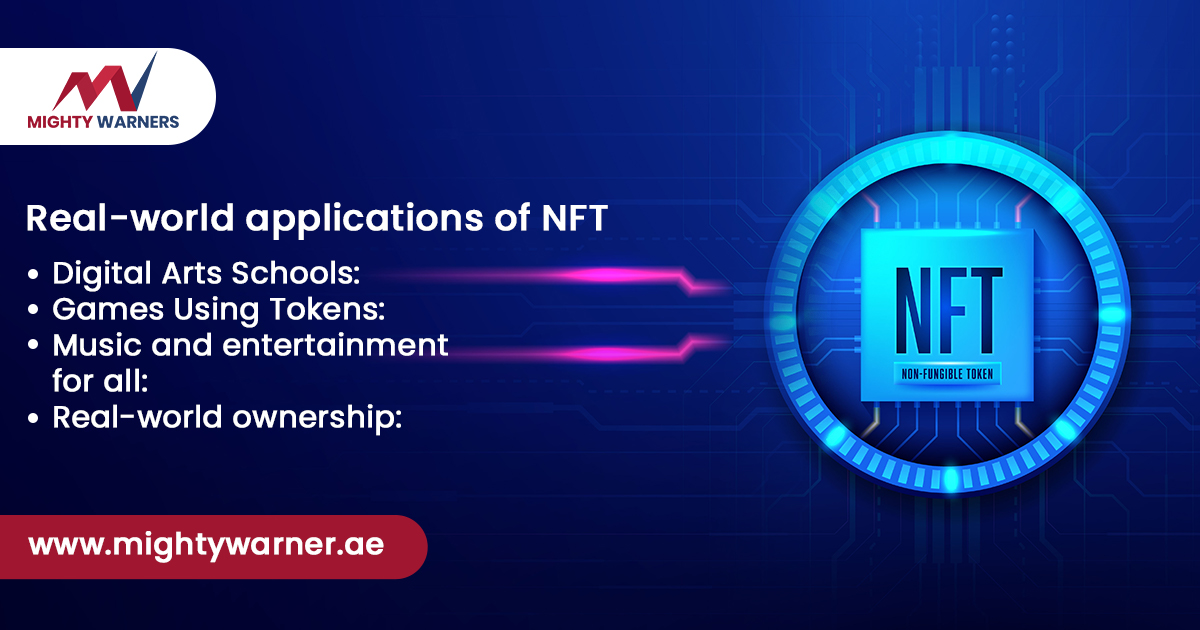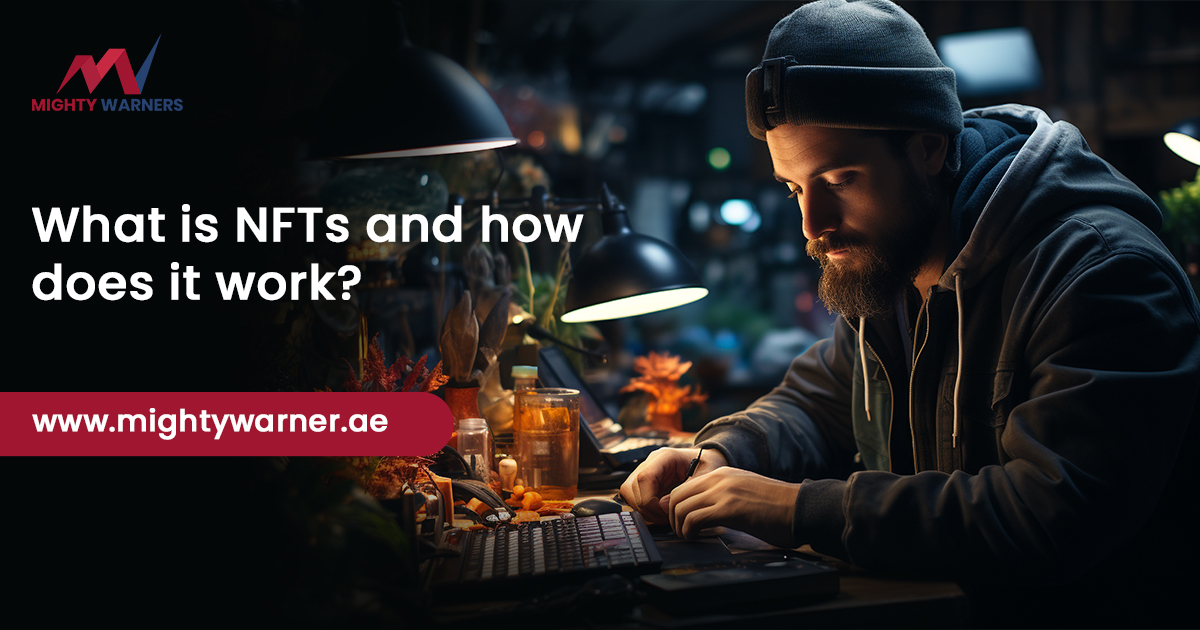In the vast digital landscape, non-fungible tokens (NFTs) have emerged as an innovative concept, transforming how we own and exchange digital assets. Let’s dive into the basics, examine NFTs, and unpack the mechanics that make them tick.
Table of Contents
ToggleWhat is NFT?
NFTs, or non-fungible tokens, are like digital certificates of ownership. They represent something unique, making each token different from the others. Unlike traditional currencies, which are “fungible” and can be exchanged individually, NFT is as individual and irreversible as they are.
How does NFT work?
Understanding NFT operations requires examining key factors that make this digital process possible.

1. The Magic of Blockchain:
At the heart of NFT is blockchain technology. Imagine a digital ledger accessed on many computers worldwide, each with a copy. This decentralized network ensures that no one company controls the entire system. Many NFTs find their home on the popular blockchain platform, Ethereum.
2. Smart contract magic:
Smart contracts are like digital wizards sitting on the blockchain. Rules are automatically generated when certain conditions are met. Smart contracts in the NFT facility determine the behavior of these tokens. They take care of ownership issues, explain the rules for transferring ownership, and even include unique stipulations such as a percentage of the original manufacturer whenever NFT changes hands
3. Specifics of the token:
Imagine your favorite basic NFT as a beautiful digital snowflake. Each NFT has a unique symbol, ensuring that no two are alike. This uniqueness is achieved through cryptographic means, giving each token its identity on the blockchain.
4. Bank Witchcraft:
Your digital wallet is like a magical bag that holds your NFT. It comes with a public key (such as an address) and a private key (your private password). When you buy an NFT, the ownership record is updated on the blockchain, and the NFT magically appears in your digital wallet. Your secret key is the secret sauce that proves you are the rightful owner.
5. Metadata Wonders:
NFT is not just about ownership; additional information called metadata is introduced. Think of it as a digital passport detailing the property NFT represents. This can include manufacturer information, a description of the digital project, and links to other products.
Also Read: How AI Technology Is Changing the Future of Digital Marketing
Real-world applications of NFT:
Let us explore some everyday scenarios where NFTs are waves.

1. Digital Arts Schools:
NFTs have revolutionized the art world, allowing digital artists to symbolize their creativity. Each digital artwork is a unique NFT that art enthusiasts can collect, buy, and sell on digital art platforms.
2. Games Using Tokens:
In games, NFT has been a force for good. NFT allows players to acquire, trade, and sell in-game assets such as special characters, books, and virtual real estate. It’s like a special sword in the digital realm, and you can claim ownership with the corresponding NFT.
3. Music and entertainment for all:
Musicians and entertainers are jumping on the NFT bandwagon, offering fans exclusive digital collectibles or unique experiences. It’s a way for artists to communicate directly with their audience, creating a different connection than traditional channels.
NFT is not limited to the digital world. They can represent real-world assets such as real estate, luxury goods, or even ownership of shares in a company. The possibilities extend beyond the realm of reality.
Also Read: The Importance of AI in The Marketing Industry: The Use of Digital Marketing Agencies in Dubai
Challenges and Considerations:
While NFTs open doors to exciting possibilities, they are not without challenges.
1. Environmental Issues:
Some critics raise environmental concerns due to the blockchain network’s energy consumption. As NFT grows in popularity, it becomes essential to find environmentally friendly solutions.
2. Questions of privilege:
NFTs present questions about copyright and intellectual property. Ensuring producers are adequately compensated and protected from abuse is an ongoing challenge.
NFT prices can be volatile, and prices fluctuate according to market demand. Navigating this dynamic terrain requires careful consideration by designers and collectors.
In conclusion, NFT represents a digital transformation, opening the door to new possibilities for ownership, creation, and connectivity. As technology evolves, these unique tokens will have an impact and application in our digital journey.
















